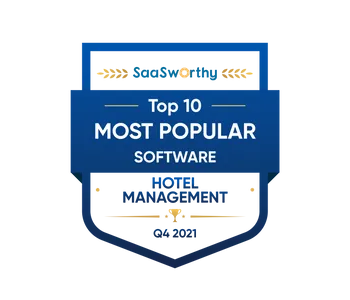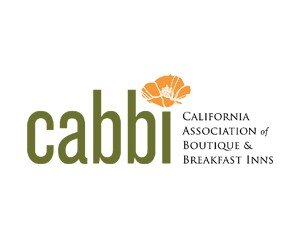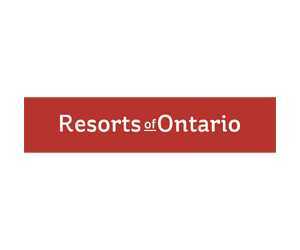Mobile is here to stay. It’s quick, convenient, and travelers want to use it to research, book, and share their trips. As of 2021, almost 50 percent of online travel sales happened via mobile, but it isn’t only the booking that occurs there. Many travelers research destinations and lodgings on their phone before opening their computer to book. Your marketing presence has to be not only mobile friendly, it has to be mobile savvy to attract guests and stay on top of the competition. Here’s how.
Mobile-optimized Website
Your website should be as easy to use on a mobile device as it is on a desktop. Mobile friendliness affects your SEO as well as your user experience. Employ a responsive design that adapts to the viewer’s device and consider developing the site for mobile first, then adding the bells and whistles that work best for desktop. When you preview new content and updates, make sure to do so on both devices.
Know what information your audience is looking for across all stages of the guest journey and have that information available within one click on mobile. Guests shouldn’t have to go on a scavenger hunt for your pricing. If you’re unsure, have a friend or relative try out your site and ask them for honest feedback.
Ease-of-use extends to your booking engine. How many steps does it take to make a booking? The quicker the better. Text should be clearly readable, and fields should be tap-friendly. Hint: Link to your booking engine from your Facebook page, so it’s ready to catch potential customers scrolling their feed!
If all this seems overwhelming and/or your site is due for a remodel, we have web design services to get that off the ground. You’re welcome to contact us for a free, no-obligation quote.
Social Media
Your social media marketing should be optimized for mobile as well. Start by linking to your—mobile-friendly—booking engine. Facebook has a button that enables you to do this while Instagram allows you to add links. Hint: Instagram’s policy changed so that you can have multiple links in your bio, not just one.
Keep your copy short and sweet. While this may depend on the channel you’re using, in general, succinct is best, especially when the screen is smaller, as it is on mobile.
Lastly, make sure that all those elegant lobby and gorgeous beach pics are as beautiful on mobile as they are on a larger screen. They shouldn’t look busy or cramped.

Apps
Thirty-nine percent of vacationers prefer to download an app while another 30 percent enjoy mobile app features, so there is a market for travel apps. Apps both improve the guest experience and increase revenue—if promoted and used correctly (that app won’t do much good if no one knows about it).
Apps fulfill all kinds of functions, from self check-in, to guest messaging, to driving upsells. Guests won’t have to hike up to their in-room landline or stop by the front desk if they want to order dinner. They can take their phone to the spa, order from there, and you can have dinner ready for them by the time they get back.
Keep in mind, apps only work if they’re simple to use. If it takes less time to actually make that hike up, you’re doing it wrong. Design the app to cohere to your overall brand style so that the experience is as smooth as possible.
Bonus: You can use a chatbot to answer easy guest questions (what is the Wi-Fi password?). As always though, you need a human on hand to deal with more complicated situations (the Wi-Fi has gained sentience).
WebRezPro partners with multiple app solutions if you’d like to try it out, including Akia and Duve.
SMS Marketing
As of 2019, text messages achieved a 98 percent open rate, with emails lagging behind at 20 percent. It’s worth it to collect the mobile phone numbers needed to market this way (your online booking engine should be able to help with this!).
Messages should be short, timely, and relevant…otherwise they risk being marked as spam. You need an answer for the same question as always: What’s in it for the guest? If there’s nothing in it for them, they won’t be interested. Include a call to action. What should guests do after reading your text?
Even though texts are short, they should still reflect your brand voice.
Don’t try to send messages manually. You don’t have that much time! Instead, choose a system that enables you to automate routine communications, sending the right message to the right person at the right moment. And, yes, you do need a way for guests to opt out if they decide not to participate in your mobile list.
None of this means you should forget about email marketing entirely though. Optimize your emails for mobile devices and use responsive design there too!
Mobile Payment
In general, you want to be able to accept payment however the guest wishes to give it to you. This includes mobile payment methods such as Apple Pay and Google Pay. Apple Pay has 45.4 million American users, and Google Pay has another 25.2 million. This comes to 70.6 million users out of a population of 333.29 million or around twenty percent, not including those who use another mobile payment app. There’s a sizable market here.
Mobile Check-in
One of the most important mobile capabilities is self check-in. Guests bypass the front desk entirely, saving time on both sides and avoiding germs (we’re in the post-pandemic era now, which means everyone winces when they hear a cough). They can complete their digital registration—which you have emailed or texted to them—and receive their digital room key via mobile.
Guests can either receive a code or download an app to enter their room, depending on your keyless solution provider. Hint: If you go the app route, choose a provider like OpenKey whose app works both with Android and iOS devices. In fact, this goes for all of your apps—guests shouldn’t be left hanging because they don’t have the right type of phone.
Advertising
You can design ads specifically for mobile users with the same sophisticated targeting you would find on desktop. Expedia and Booking.com com both allow you to set special promotions for mobile. These kinds of promotions are helpful for bringing in last-minute bookers who are more likely to use their phones.
Analysis
Collect and review performance metrics to determine the success of your mobile programs. How many people message you via your app versus picking up that landline? What percentage of your guests open your website on a mobile device? (Google Analytics can help with this one.) You need more than a vague, gut feeling to steer your business.
From purchasing clothes to watching Netflix to booking travel, today’s consumers demand a stress-free, streamlined experience—and mobile delivers. Use these tips to optimize your marketing efforts for mobile to attract guests and outpace your competitors.




























